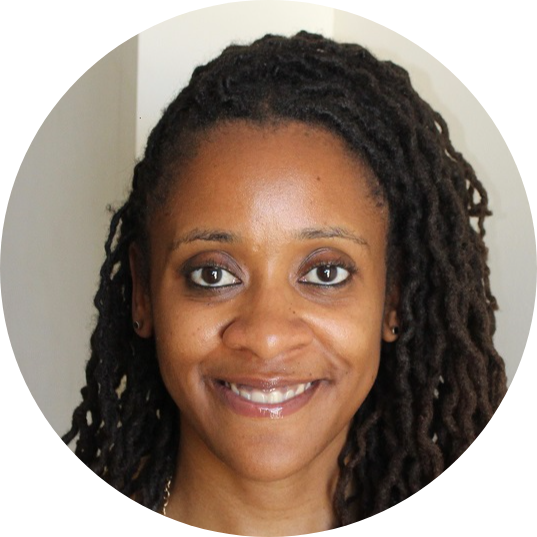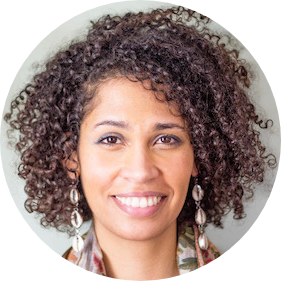
This article is part of our Freedom and Justice Week series – as Global Dashboard provides a platform for a diversity of voices to explore how we respond to the wave of protests that followed the murder of George Floyd. Read all the articles in the series here.
We are a group of women who met in high school in the late 90s, at ACS International School in Cobham, just outside of London, UK. Between the four of us, we have lived in 38 countries in Africa, Asia, Europe, North America, and South America and attended 14 international schools. We currently work in education, science, and culture in Lagos, London, New York City, and Washington D.C.
The murders of George Floyd, Breonna Taylor, and Ahmed Aubrey in the midst of the coronavirus pandemic have sparked global outrage, putting a spotlight on the systemic racism that continues to persist, not just in the United States but all around the world.
Fifty-four African countries are calling for an urgent United Nations Human Rights Council meeting to look into police brutality and violence against peaceful protests in the US. Protesters around the world are voicing their anger at the systemic racism and police brutality within their own countries. Statues of colonisers, slave traders, and Confederate soldiers have been torn down in Western cities from Antwerp to Bristol to Richmond, following the lead that countries in the Global South, like South Africa, Mexico, and South Korea have taken in the last decades. The world is waking and finally saying ENOUGH is ENOUGH.
“As women of colour, we have seen racism manifest itself in our personal and professional lives”
As women of colour, we have seen racism manifest itself in our personal and professional lives. As products of international schools, we have also benefited from the tremendous privilege of being educated in world-class institutions and being exposed to many cultures, religions, and ethnicities from an early age. International schools advocate a multicultural education that uphold values of tolerance, understanding, compassion, and respect. International school mission statements focus on developing global citizens who embrace diversity.
For many former students, their memories of international schools are filled with images of racial harmony; celebrations of international holidays, eating foods from all around the world, and travelling to other countries for sports or volunteer service. All four of us have very fond memories of our time and cultural exchanges with our friends at international schools. However, in our experience, our international schools did little to directly address cultural or racial prejudice in classrooms or dismantle structural racism in their institutions.
Some of our anecdotal experiences include blatant individual racism. Being told by a music teacher in Belgium that black people can’t learn classical music. Being asked to educate and empathise with a colleague who was openly racist in the UK. Other, more pervasive examples at the institutional level stem from the global legacy of colonialism, where we were often taught history, arts, and perspectives through colonial lenses, and where the leaders and administrators were predominantly male and white, even in schools in Africa, Asia, and Latin America.
While there are many examples of the good work and progress that have been made by international schools to address racism (often student or teacher-led), there are many others that continue to shelter an environment of racial inequity. The protests around the world provide a moment of reckoning and a teachable moment.
“It is time that ALL international schools be proactive global leaders and incorporate and promote anti-racism into their education and institutions”
There are more than 11,000 international schools with over 5.6 million students. It is time that ALL international schools be proactive global leaders and incorporate and promote anti-racism into their education and institutions. Anti-racism is not just a statement or sentiment, it is the active process of identifying and eliminating racism by changing systems, organisational structures, policies and practices and attitudes. International schools need to challenge systemic racism and colonial mentalities at all levels. Their mission statements must match their hiring policies, leadership teams, curriculum, and environment.
As women who have international school education, have worked in international schools, and have children who attend international schools, we ask for them to do better. We ask that the systems that govern international schools do better.
We are not alone. Students, alumni, teachers, and administrators around the world are leading the way, providing commentary (on the role of international schools on anti-racism, the black experience and ways forward in international schools, and hiring practices), developing strategies (anti-racist approach in international education, international school accreditation standards), and adopting plans (commitment from ISS) on how international schools can incorporate anti-racism and create the global education our children deserve. It is our love for the ideals of international schools, our belief in the power of education, and our commitment to creating the world we want to see that has inspired us to call for action.
“We ask that the systems that govern international schools do better”
We have created a petition that asks for support from international school students, parents, alumni, teachers, staff, and administration, and identifies four actions on anti-racism (listed below), that we suggest be taken by international schools and the bodies that govern them.
The listed actions build on and were inspired by the work of others in the international school and education community, but they are not exhaustive. We invite people to share their ideas, resources, workshops, plans, and progress related to anti-racism at their school on social media using the hashtag #intschoolantiracism. We want to encourage others to push for progress, track progress, and hold schools and decision making bodies accountable.
International schools need to acknowledge and address racism in all its forms if they are serious about creating conscious and caring global citizens. And there is no time like the present. We hope you will join us in creating the world we all deserve.
Action towards anti-racism at international schools:
1. Make a statement on anti-racism and outline a plan. Many international schools and accreditation bodies are already issuing statements that acknowledge and condemn systemic racism. We laud this effort, however, they should go a step further and stand with their student and teacher activists, affirm Black Lives Matter, and specify a plan on how their institutions will take action to develop anti-racist policies, structures, and systems within their specific context. Before finalising a plan, schools and institutions should consult with students, teachers, and other staff to identify the shortcomings of the school or institution and better understand how to make progress with specific actions. The international school associations that set standards, provide accreditation, and training for international schools should also revise their accreditation standards (see suggestions from this petition), require their member schools to develop an anti-racism plan, and ensure administration and teacher training adequately address anti-racism. Schools and associations should track their progress and provide a transparent assessment to the international school community.
2. Critically address HR: hiring, retention, promotion, and leadership at all levels. A high level of diversity is represented in the student bodies at international schools, but often, the same level of diversity is not reflected in the staff, administration, and in international school associations. Welcoming and retaining diverse teachers and leaders will increase the effectiveness of addressing structural racism and (neo) colonialism. Some ways to foster workplace diversity include: a) assessing written policies, procedures, selection and promotion criteria to identify bias, and make changes (like nationality restrictions and definitions of native english language proficiency); b) ensuring parity of remuneration across nationalities, ethnicities and gender; c) implementing retention measures and incentives that keep non-white faculty within the international school system.
3. Rethink what you teach, and how you teach it. Students, teachers, and leadership teams must work together to create anti-racist and decolonised education models, approaches and curricula. For example, curricula could incorporate discussions on anti-racism within each country’s context, global anti-blackness and colourism, the Black Lives Matter movement, and social justice. Furthermore, international schools should take the lead in decolonising pedagogy and curricula by asking critical questions and using educational materials and resources with a variety of cultural and historical perspectives.
4. Ensure accountability and establish a zero-tolerance policy for racism. Make clear that racial discrimination and harassment, including on social media, will not be tolerated and can be grounds for termination or expulsion. Put in place accountability mechanisms that have clear consequences for racist acts and create an enabling environment for sustainable conflict resolution. For this to be successful, international schools should provide an avenue for providing feedback, asking questions, and reporting racist incidents.
National School Walkout Photo: Phil Roeder, Flickr (CC BY 2.0)







